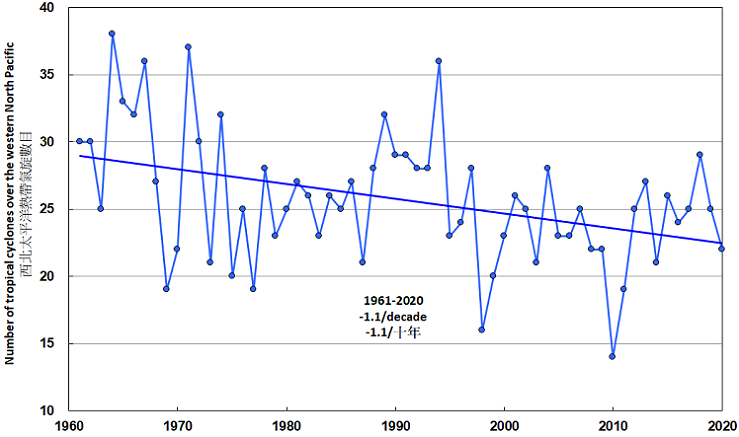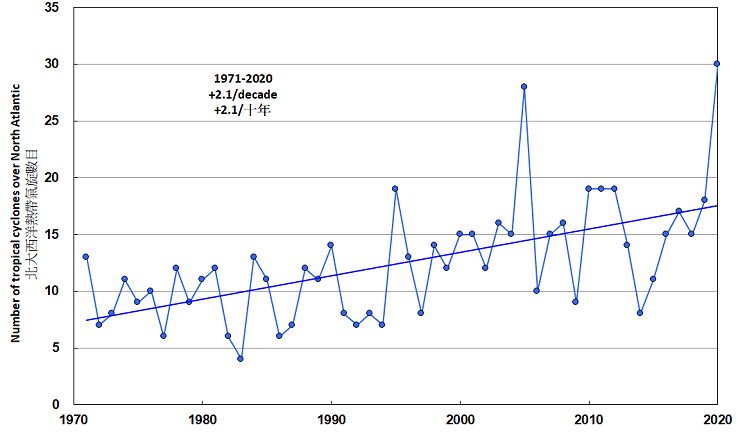Global Climate Change - Tropical cyclones
Global Climate Change |
|||||
|
|||||
Global |
|||||
According to IPCC AR6, it is likely that the global proportion of major tropical cyclone occurrence has increased over the last four decades. This change cannot be explained by natural variability alone. Human influence has increased heavy precipitation associated with tropical cyclones.
|
Western North PacificApart from the Hong Kong Observatory, several tropical cyclone warning centres also compile best track data sets for tropical cyclones over the western North Pacific. The result of trend analysis of tropical cyclone frequency will depend on the choice of data set. According to the records of the Observatory, there is a decreasing trend in the frequency of tropical cyclones over the western North Pacific since 1961.
Annual number of tropical cyclones with at least tropical storm intensity over the western North Pacific (1961-2020). (Data source: Hong Kong Observatory)
|
AtlanticRecent studies suggested that there are significant increasing trends in frequencies of tropical cyclones and very intense tropical cyclones over the Atlantic since the 1970s.
Annual number of tropical cyclones with at least tropical storm intensity over the North Atlantic (1971-2020). (Data source: US National Oceanic and Atmospheric Administration)
Detection of long-term changes in tropical cyclone activity is subject to uncertainties in the historical data. Based on available records, there is no significant trend observed in global tropical cyclone frequency.
|
Note: The trends of tropical cyclone frequencies over the western North Pacific and the North Atlantic are statistically significant at 5% level.
|

